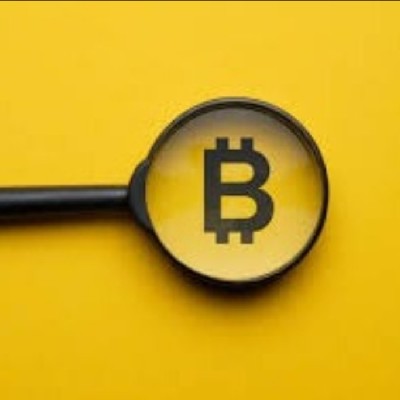Bitget: #4 mondial en volume de trading quotidien!
Part de marché du BTC63.34%
Nouveaux listings sur Bitget : Pi Network
BTC/USDT$94608.89 (+1.50%)Indice Fear and Greed65(Euphorie)
Altcoin Season Index:0(Saison du Bitcoin)
Tokens listés dans Pré-MarchéSIGNTotal des flux nets des ETF Spot Bitcoin +$380M (1j) ; +$3.14B (7j).Pack de bienvenue pour les nouveaux utilisateurs d'une valeur de 6200 USDT.Récupérer
Tradez à tout moment et en tout lieu grâce à l'application Bitget ! Télécharger maintenant
Bitget: #4 mondial en volume de trading quotidien!
Part de marché du BTC63.34%
Nouveaux listings sur Bitget : Pi Network
BTC/USDT$94608.89 (+1.50%)Indice Fear and Greed65(Euphorie)
Altcoin Season Index:0(Saison du Bitcoin)
Tokens listés dans Pré-MarchéSIGNTotal des flux nets des ETF Spot Bitcoin +$380M (1j) ; +$3.14B (7j).Pack de bienvenue pour les nouveaux utilisateurs d'une valeur de 6200 USDT.Récupérer
Tradez à tout moment et en tout lieu grâce à l'application Bitget ! Télécharger maintenant
Bitget: #4 mondial en volume de trading quotidien!
Part de marché du BTC63.34%
Nouveaux listings sur Bitget : Pi Network
BTC/USDT$94608.89 (+1.50%)Indice Fear and Greed65(Euphorie)
Altcoin Season Index:0(Saison du Bitcoin)
Tokens listés dans Pré-MarchéSIGNTotal des flux nets des ETF Spot Bitcoin +$380M (1j) ; +$3.14B (7j).Pack de bienvenue pour les nouveaux utilisateurs d'une valeur de 6200 USDT.Récupérer
Tradez à tout moment et en tout lieu grâce à l'application Bitget ! Télécharger maintenant



Prix de Fuel NetworkFUEL
Listé
Devise de cotation:
EUR
€0.01088+3.86%1D
Convertisseur FUEL vers EUR
FUEL
EUR
1 FUEL = 0.00 EUR
Bitget offre les frais de trading les plus bas parmi les principales plateformes d'échange. Plus votre niveau VIP est élevé, plus les frais sont avantageux.
Prix
TradingView
Capitalisation
Graphique de prix Fuel Network (FUEL/EUR)
Dernière mise à jour : 2025-04-26 06:20:15(UTC+0)
Capitalisation boursière:€50,543,728.42
Capitalisation entièrement diluée:€50,543,728.42
Volume (24h):€2,955,927.88
Vol. (24h) / Cap. boursière:5.84%
Haut (24h):€0.01111
Bas (24h):€0.01036
Record historique (ATH):€0.07408
Plus bas niveau historique:€0.006329
Offre en circulation:4,644,171,300 FUEL
Offre totale:
10,052,244,351.29FUEL
Taux de circulation:46.00%
Offre maximale:
--FUEL
Prix en BTC:0.{6}1311 BTC
Prix en ETH:0.{5}6908 ETH
Prix avec la capitalisation du BTC:
€355.02
Prix avec la capitalisation de l'ETH:
€40.95
Contrats:
0x675B...192079c(Ethereum)
Plus
Que pensez-vous de Fuel Network aujourd'hui ?
Remarque : ces informations sont données à titre indicatif.
Rapport d'analyse IA sur Fuel Network
Points clés du marché crypto aujourd’huiVoir le rapport
Prix de Fuel Network du jour en EUR
Le prix en temps réel de Fuel Network est de €0.01088 EUR aujourd'hui, avec une capitalisation boursière de €50.54M. Le prix de Fuel Network a augmenté de 3.86% au cours des dernières 24 heures, et le volume de trading sur 24 heures est de €2.96M. Le taux de conversion FUEL/EUR (Fuel Network vers EUR) est mis à jour en temps réel.
Historique des prix de Fuel Network (EUR)
Le prix de Fuel Network enregistre -76.52% sur un an. Le prix le plus élevé de FUEL en EUR au cours de l'année écoulée est de €0.07408 et le prix le plus bas de FUEL en EUR au cours de l'année écoulée est de €0.006329.
HeureVariation de prix (%) Prix le plus bas
Prix le plus bas Prix le plus élevé
Prix le plus élevé 
 Prix le plus bas
Prix le plus bas Prix le plus élevé
Prix le plus élevé 
24h+3.86%€0.01036€0.01111
7d+40.42%€0.007566€0.01111
30d+4.60%€0.006329€0.01575
90d-61.73%€0.006329€0.02556
1y-76.52%€0.006329€0.07408
Tous les temps-37.88%€0.006329(2025-04-07, il y a 19 jour(s) )€0.07408(2024-12-29, il y a 118 jour(s) )
Quel est le prix le plus élevé de Fuel Network ?
Le record historique (ATH) de Fuel Network en EUR est de €0.07408, enregistré le 2024-12-29. Par rapport à l'ATH de Fuel Network, le prix actuel de Fuel Network est inférieur de 85.31%.
Quel est le prix le plus bas de Fuel Network ?
Le plus bas niveau historique (ATL) de Fuel Network en EUR est de €0.006329, enregistré le 2025-04-07. Par rapport à l'ATL de Fuel Network, le prix actuel de Fuel Network est supérieur de 71.96%.
Prédiction de prix de Fuel Network
Quel sera le prix de FUEL en 2026 ?
En se basant sur le modèle de prédiction des performances historiques de FUEL, le prix de FUEL devrait atteindre €0.01634 en 2026.
Quel sera le prix de FUEL en 2031 ?
En 2031, FUEL devrait voir son prix augmenter de +48.00%. D'ici la fin de l'année 2031, FUEL devrait voir son prix atteindre €0.03013, avec un ROI cumulé de +187.73%.
FAQ
Quel est le prix actuel de Fuel Network ?
Le prix en temps réel de Fuel Network est €0.01 (FUEL/EUR) avec une capitalisation actuelle de €50,543,728.42 EUR. La valeur de Fuel Network connaît des fluctuations fréquentes en raison de l'activité continue, 24 heures sur 24 et 7 jours sur 7, du marché des cryptomonnaies. Le prix en temps réel de Fuel Network et ses données historiques sont disponibles sur Bitget.
Quel est le volume de trading sur 24 heures de Fuel Network ?
Au cours des dernières 24 heures, le volume de trading de Fuel Network est de €2.96M.
Quel est le record historique de Fuel Network ?
Le record historique de Fuel Network est de €0.07408. Il s'agit du prix le plus élevé de Fuel Network depuis son lancement.
Puis-je acheter Fuel Network sur Bitget ?
Oui, l'achat de Fuel Network est actuellement disponible sur la plateforme d'échange centralisée Bitget. Pour des instructions plus détaillées, pensez à consulter notre guide pratique Comment acheter fuel-network .
Puis-je gagner des revenus réguliers en investissant dans Fuel Network ?
Bien entendu, Bitget fournit une plateforme de trading de stratégie, avec des bots de trading intelligents permettant d'automatiser vos trades et d'engranger des bénéfices.
Où puis-je acheter des Fuel Network au meilleur prix ?
Nous avons le plaisir d'annoncer que plateforme de trading de stratégie est désormais disponible sur la plateforme d'échange Bitget. Bitget offre les frais de trading les plus bas du secteur ainsi qu'une profondeur importante afin d'assurer des investissements rentables aux traders.
Actualités Fuel Network
Afficher plus
Mises à jour Fuel Network
Marché Fuel Network
Avoirs Fuel Network
Matrice de distribution des avoirs Fuel Network
Avoirs Fuel Network par concentration
Baleines
Investisseurs
Particuliers
Adresses Fuel Network par durée de détention
Holders
Cruisers
Traders
Graphique en temps réel du prix de coinInfo.name (12)

Prix de Fuel Network mondiaux
Combien vaut actuellement Fuel Network dans d'autres devises ? Dernière mise à jour : 2025-04-26 06:20:15(UTC+0)
FUEL en MXN
Mexican Peso
Mex$0.24FUEL en GTQGuatemalan Quetzal
Q0.1FUEL en CLPChilean Peso
CLP$11.6FUEL en HNLHonduran Lempira
L0.32FUEL en UGXUgandan Shilling
Sh45.49FUEL en ZARSouth African Rand
R0.23FUEL en TNDTunisian Dinar
د.ت0.04FUEL en IQDIraqi Dinar
ع.د16.26FUEL en TWDNew Taiwan Dollar
NT$0.4FUEL en RSDSerbian Dinar
дин.1.28FUEL en DOPDominican Peso
RD$0.74FUEL en MYRMalaysian Ringgit
RM0.05FUEL en GELGeorgian Lari
₾0.03FUEL en UYUUruguayan Peso
$0.52FUEL en MADMoroccan Dirham
د.م.0.12FUEL en AZNAzerbaijani Manat
₼0.02FUEL en OMROmani Rial
ر.ع.0FUEL en KESKenyan Shilling
Sh1.6FUEL en SEKSwedish Krona
kr0.12FUEL en UAHUkrainian Hryvnia
₴0.52- 1
- 2
- 3
- 4
- 5
Comment acheter Fuel Network(FUEL)

Créez votre compte Bitget gratuitement
Inscrivez-vous sur Bitget avec votre adresse e-mail/numéro de téléphone portable et créez un mot de passe robuste pour sécuriser votre compte.

Vérifiez votre compte
Vérifiez votre identité en saisissant vos informations personnelles et en téléchargeant une photo d'identité valide.

Convertir Fuel Network en FUEL
Choisissez parmi les cryptomonnaies à trader sur Bitget.
En savoir plusTrader des Futures perpétuels FUEL
Après vous être inscrit avec succès sur Bitget et avoir acheté des USDT ou des FUEL, vous pouvez commencer à trader des produits dérivés, y compris des Futures FUEL, et à trader sur marge pour augmenter vos revenus.
Le prix actuel de FUEL est de €0.01088, avec une variation de prix sur 24 heures de . Les traders peuvent tirer profit d'une position Futures FUEL long ou short.
Rejoignez le copy trading de FUEL en suivant des traders experts.
Après vous être inscrit sur Bitget et avoir réussi à acheter des USDT ou des FUEL, vous pouvez également vous lancer dans le copy trading en suivant des traders experts.
Nouveaux listings sur Bitget
Nouveaux listings
Acheter plus
Où puis-je acheter Fuel Network (FUEL) ?
Achetez des cryptos sur l'application Bitget
Inscrivez-vous en quelques minutes pour acheter des cryptos par carte ou virement bancaire.
Section vidéo – vérifier son identité rapidement

Comment vérifier son identité sur Bitget et se protéger contre les fraudes
1. Connectez-vous à votre compte Bitget.
2. Si vous êtes nouveau sur Bitget, consultez notre guide sur comment créer un compte.
3. Survolez l'icône de votre profil, cliquez sur "Non vérifié" puis sur "Vérifier".
4. Choisissez le pays ou région d'émission de votre pièce d'identité et votre type de document, puis suivez les instructions.
5. Sélectionnez "Vérification mobile" ou "PC" selon votre préférence.
6. Saisissez vos informations personnelles, présentez une copie de votre pièce d'identité et prenez un selfie.
7. Enfin, soumettez votre demande pour terminer la vérification de l'identité.
Les investissements en cryptomonnaies, y compris l'achat de Fuel Network en ligne sur Bitget, sont soumis au risque du marché. Bitget fournit des moyens faciles et pratiques pour vous d'acheter des Fuel Network, et nous faisons de notre mieux pour informer pleinement nos utilisateurs sur chaque cryptomonnaie que nous offrons sur la plateforme d'échange. Toutefois, nous ne sommes pas responsables des résultats qui pourraient découler de votre achat de Fuel Network. Cette page et toute information qui s'y trouve ne constituent pas une recommandation d'une quelconque cryptomonnaie.
Convertisseur FUEL vers EUR
FUEL
EUR
1 FUEL = 0.01088 EUR
Bitget offre les frais de trading les plus bas parmi les principales plateformes d'échange. Plus votre niveau VIP est élevé, plus les frais sont avantageux.
Notes Fuel Network
Note moyenne de la communauté
4.3
Ce contenu est uniquement destiné à des fins d'information.
Bitget Insights

muphy
10h
$EPT Coin’s Market Outlook: Bullish or Bearish Trend Ahead?
With $EPT coin gaining traction among crypto traders and investors, the question on everyone’s mind is: What’s next? Will $EPT continue its upward momentum or is a bearish correction on the horizon? This article provides a comprehensive analysis of $EPT’s market outlook, focusing on sentiment, trends, and key catalysts shaping its future direction.
Current Market Sentiment
As of now, market sentiment around $EPT is a mix of cautious optimism and speculative enthusiasm. Trading volumes have seen a noticeable uptick, signaling increasing interest. However, social media chatter and community forums reflect a divided stance—some expect a breakout, while others are preparing for a pullback.
A quick glance at fear and greed indexes and sentiment trackers shows $EPT hovering in a neutral-to-greedy zone, which typically signals heightened trader anticipation but also potential volatility ahead.
Evaluating Market Trends
1. Price Action Overview
Over recent weeks, $EPT has demonstrated both strength and resilience, forming a consistent pattern of higher lows while testing key resistance zones. If this pattern holds, it indicates bullish undercurrents. However, failure to break resistance may turn the trend sideways or bearish in the short term.
2. Volume and Liquidity
Volume spikes on upward moves suggest that bulls are still in control. Liquidity remains healthy, with active participation from traders and a steady flow of new buyers entering the market. If volume begins to dry up, it could be an early sign of momentum fading.
3. On-Chain and Exchange Data
Exchange inflows for $EPT are currently low, indicating that holders are not rushing to sell. Whale wallet activity has shown a modest increase in accumulation, hinting at long-term confidence from larger investors.
Key Catalysts That Could Drive $EPT's Next Move
Bullish Catalysts:
Partnership Announcements: New collaborations or integrations could act as a strong price catalyst.
Exchange Listings: A listing on a major exchange could significantly boost visibility and liquidity.
Roadmap Milestones: If $EPT delivers on promised developments, it could fuel investor optimism.
Bearish Catalysts:
Regulatory Pressure: Any unfavorable regulatory news could trigger panic selling, especially in volatile altcoin markets.
Failure to Maintain Key Support: A drop below major support levels could trigger stop-losses and push prices lower.
Market-wide Corrections: A broader crypto market downturn could negatively affect $EPT regardless of its individual strength.
Bullish or Bearish: What’s the Verdict?
Short-Term Outlook:
Cautiously bullish. As long as $EPT maintains its support levels and sees steady volume, short-term upside is likely. Traders should watch for a clean break above resistance zones for confirmation.
Mid to Long-Term Outlook:
Potentially bullish, but conditional. $EPT’s growth will depend heavily on its ability to meet ecosystem milestones, attract adoption, and maintain community engagement. Without fundamental progress, any price rally may not be sustainable.
Conclusion
The market outlook for $EPT coin remains cautiously optimistic. With growing interest, healthy trading activity, and potential bullish catalysts on the horizon, $EPT may have room to climb. However, traders and investors should stay vigilant, monitor the broader crypto landscape, and be ready to adapt to new developments. In this volatile environment, staying informed is just as important as staying invested.$EPT
FUEL-0.56%
MOVE+3.95%

BitEagle_News
10h
Recent days made me realize how happy I am and how important it is I never scaled my lifestyle to my net worth.
I've been in crypto a long time so naturally I've met quite a bunch of people that made good money along the years.
It's tempting to spend more when you make more and that's exactly what they did.
But most fail to realize that crypto or any investing market in general isn't a lineair process.
You can be making much for multiple months but also make close to nothing right after.
Even worse, incur losses as well sometimes. That's why you don't scale your lifestyle to the same extent your net worth rises sometimes.
Take $100k for example. When you make that in the span of 6 months you feel on top of the world. You start calculating and realize that's thee equivalent of close to $17k a month.
Whatever your end goal is, that's already a huge bonus on your life to start with.
Yet a fancy car and some increased spending for a couple of months can quickly erased that.
But you make close to $17k a month right? You can easily keep this up.
Yet you don't... Moments of "less optimal conditions" approach and you'll soon realize you are scrambling not to sell the remaining of your other crypto assets all of a sudden...
Even working at a 9-5 factory job is more than you did before all of a sudden as well.
Same example when you theoretically made more than a million.
If you played it smart you could have even retired for life and kept the ball rolling without ever needing to go work a regular job ever again.
(passive income, yield, real estate etc)
But because you scaled your lifestyle you'll quickly realize everything is gone after 5-10 years.
That Mustang, that Porsche, that lambo, that .... All have HUGE maintenance costs and the fuel it consumes is out of this world.
Those designer clothes and watches are cool and all but no other person even cares and when your money runs out you realize you would have rather sat at home or on the beach in total freedom with a stupid plastic ugly watch than own a Rolex at home you aren't even going to wear because you're stuffing boxes again at the factory or bringing coffee to your boss.
You would think all of this is common sense right?
Yet you would be surprised actually how VERY LITTLE amount of people in this space actually have been able to make more but did not scale their lifestyle to the same extent.
Always remind yourself that you are solely responsible for making sure you have something that lasts or see it come to an end.
FUEL-0.56%
SOON+0.98%
samuelsammy
11h
What’s Fueling Bullish Sentiment on Initia Right Now?
What’s Fueling the Bullish Sentiment on Initia Right Now?
The cryptocurrency market is no stranger to rapid shifts in sentiment, but few projects have caught as much bullish attention in recent days as Initia (INIT). From its successful mainnet launch to compelling technical signals, Initia has been building a strong case for continued investor enthusiasm. Here’s a breakdown of what’s driving the current wave of optimism.
Mainnet Launch Sets the Tone
At the center of Initia’s bullish momentum is the much-anticipated launch of its mainnet. This marks a significant milestone for the project, solidifying its transition from concept to a functional layer 1 and layer 2 modular network. The market quickly responded to this development, with INIT posting a 12% price surge within 24 hours of the announcement. More importantly, it managed to break above the 50-day Exponential Moving Average (EMA), a key technical threshold that often signals a shift in long-term trend.
Technical Indicators Flash Green
Beyond the fundamentals, Initia’s price action is also supported by a series of bullish technical signals. On the 4-hour chart, the token is forming an ascending triangle—a continuation pattern that frequently results in a breakout. The Relative Strength Index (RSI) is holding around 60, indicating strong momentum without entering overbought territory. Meanwhile, a bullish crossover in the MACD indicator reinforces the narrative of sustained upward pressure. If INIT can decisively break through the $0.87 resistance, analysts suggest it could target levels near $0.95 or higher in the near term.
Scarcity and Tokenomics Add Fuel
Another factor adding to Initia’s appeal is its tokenomics. INIT features a capped supply structure that introduces scarcity—an important element for long-term price appreciation. Analysts have highlighted the token’s deflationary characteristics, including the possibility of burns and strategic lockups, as reasons why INIT could see a major price expansion over time. Some price models even forecast a long-term valuation around $30 by 2025 if ecosystem adoption and market momentum continue on their current trajectory.
A Word of Caution Amid the Hype
Despite the positive signals, traders should remain alert to potential volatility. Initia’s 24-hour trading volume recently spiked to over 673 million INIT, but its struggle to maintain levels above $0.85 hints at possible near-term exhaustion. Some technical indicators, including the Parabolic SAR flipping above the price and early signs of bearish divergence in MACD and RSI, suggest that a short-term pullback could occur before any sustained move higher.
Conclusion
Initia is currently riding a strong wave of bullish sentiment, driven by a blend of significant technical breakthroughs, favorable chart patterns, and solid tokenomics. While the project’s fundamentals continue to strengthen, investors should maintain a balanced view, combining enthusiasm with caution as the market processes this latest momentum. Whether INIT can convert this surge into a lasting upward trend remains to be seen—but for now, it’s clearly one of the tokens to watch.
$INIT
FUEL-0.56%
MOVE+3.95%

Gblaxx73rc
12h
$BTC to $110K is not just hype — here’s why it’s looking more and more realistics...
1. ETF Demand Heating Up
Institutional accumulation is accelerating. BlackRock, Fidelity, and others are scooping BTC like it’s going out of style. These aren’t traders — they’re holding long-term.
2. Supply Shock Incoming
Post-halving effects + long-term HODLers not selling = major supply crunch. Meanwhile, demand’s climbing. That’s classic rocket fuel.
3. On-Chain Strength
Dormant BTC wallets are staying inactive, whale wallets are increasing, and retail is still asleep — the perfect storm for a parabolic move.
4. Historical Patterns Aligning
Every past halving cycle brought a 3x–6x move from pre-halving levels. We’re still early in this one.
5. Global Macro Setup
Rate cuts are coming, fiat is weakening, and digital gold is shining. BTC is becoming the safe haven of the digital age.
---
Target Range:
Short-term: $74K – $84K
Mid-term: $90K – $100K
Cycle Top Potential: $110K – $120K
BTC-0.03%
X+0.65%

Abdulmaliknasiru
13h
TITLE
's 2025 Momentum: Institutional Adoption and Legal Clarity Fuel Growth
POST BODY
In 2025, XRP is gaining significant traction due to key developments:
CME Group's XRP Futures Launch: Set for May 19, 2025, CME's introduction of cash-settled XRP futures marks a pivotal move, expanding institutional access to $XRP trading.
(Source: Reuters)
SEC Lawsuit Settlement: Ripple Labs has resolved its longstanding lawsuit with the SEC, providing much-needed regulatory clarity and boosting investor confidence in $XRP .
(Source: Reuters)
Price Performance: $XRP has demonstrated resilience, outperforming major cryptocurrencies with a 5.3% increase year-to-date, while Bitcoin and Ethereum have faced declines.
(Source: Reuters)
Why This Matters:
These developments position $XRP as a strong contender in the crypto market, attracting both retail and institutional investors seeking stability and regulatory assurance.
What are your thoughts on XRP's trajectory in 2025? Share your insights below!$XRP
FUEL-0.56%
MOVE+3.95%
Actifs liés
Cryptos populaires
Sélection des 8 principales cryptomonnaies par capitalisation boursière.
Récemment ajoutées
Les cryptomonnaies les plus récemment ajoutées.
Capitalisation boursière comparable
Parmi tous les actifs Bitget, ces 8 actifs sont les plus proches de Fuel Network en termes de capitalisation boursière.
Infos complémentaires sur Fuel Network
Détails de la crypto
En lien avec la crypto
En lien avec le trading
Actualités de la crypto
Trading
Earn
FUEL est disponible pour le trading sur Bitget, et peut être conservé en garde sur Bitget Wallet. Bitget est également l'une des premières plateformes d'échange centralisées à prendre en charge le trading de FUEL.
Vous pouvez trader FUEL sur Bitget.FUEL/USDT
SpotFUEL/USDT
Futures USDT-M
































